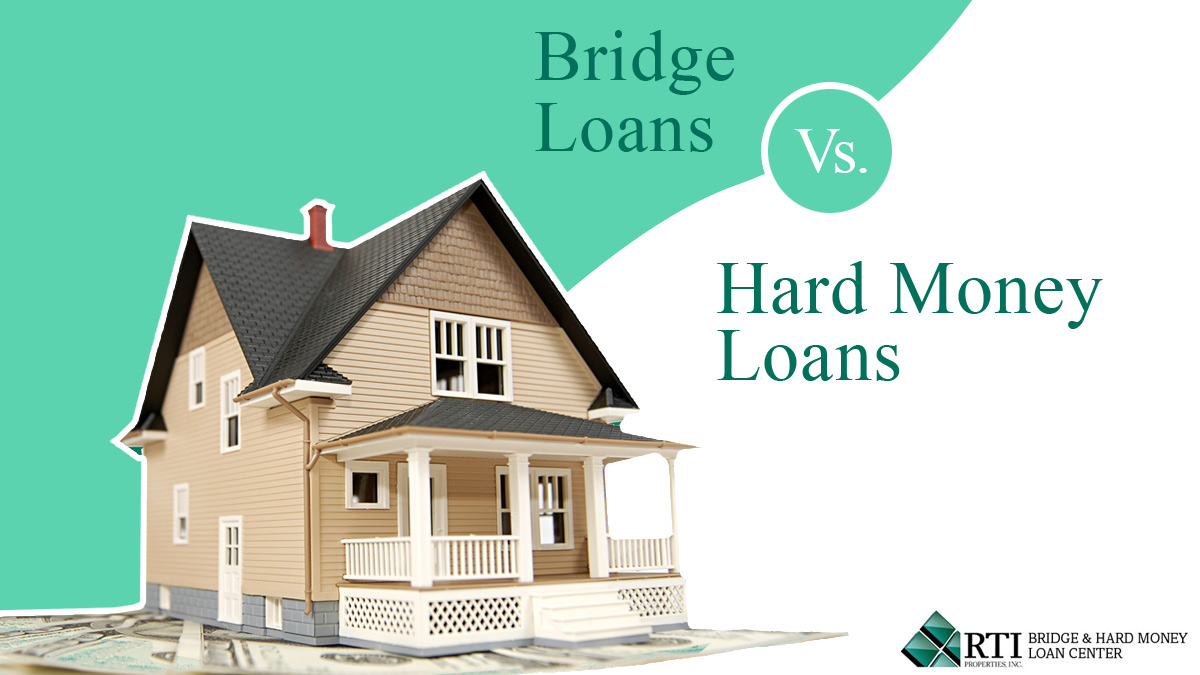Home » Blog » Hard Money Loans » Bridge Loans vs Hard Money Loans

If you’re looking for a short-term financing solution to bridge a funding gap or seize a lucrative opportunity, two popular options for such scenarios are bridge loans and hard money loans. However, understanding the similarities and differences between these financial solutions is crucial for making informed decisions.
Bridge loans, secured by property, are hard money loans, and hard money loans can also be called short-term bridge loans, so the two are pretty similar. However, choosing between these two options requires carefully evaluating your financial situation, the property in question, and the urgency of your capital needs.
In this blog post, we’ll delve into the intricacies of bridge and hard money loans, highlighting their similarities and differences and how to choose the most suitable option for specific circumstances.
A bridge loan is a short-term loan that’s designed to provide immediate capital while awaiting the long-term financing or sale of an existing property. Bridge loans are commonly used by homebuyers who need funds to purchase a new home before selling their current one. Businesses also employ commercial bridge loans as short-term financing solutions to secure immediate capital for real estate projects and property acquisitions or bridge financial gaps while awaiting long-term financing.
Bridge loans typically have a duration of six months to three years and may be secured by the property being acquired or the borrower’s existing property. Interest rates on bridge loans tend to be higher than conventional mortgage rates due to the short-term nature of the loan and the perceived risk associated with the transitional phase.
A hard money loan is a type of short-term financing secured by real estate. Unlike traditional loans, private individuals or investors usually provide hard money loans rather than banks or financial institutions. Hard money lenders focus more on the collateral than the borrower’s creditworthiness.
The loan amount is usually determined by the property’s appraised value rather than the borrower’s credit score, which makes these loans common among real estate investors looking for quick capital to fund a project, especially when traditional financing is unavailable or too slow.
While there are a lot of similarities between bridge loans and hard money loans, they are not entirely interchangeable. Here are some of the differences between hard money loans and bridge loans:
Understanding the similarities and differences between hard money loans and bridge loans allows you to make an informed decision aligning with your specific real estate goals and circumstances. Here are some of the similarities between the two:
Bridge loans vs hard money loans: Which should you choose? Here’s a quick guide to help you choose between bridge loans and hard money loans:
Ultimately, bridge loans and hard money loans can both be valuable tools when used strategically.
Choosing a bridge loan or hard money loan may be advantageous when seeking quick and flexible financing for real estate investments, especially with credit constraints. While bridge loans offer a more traditional and potentially cost-effective solution, hard money loans provide a faster and more accessible option for investors with unique financing needs.
If you are buying a new home and want to sell your existing home at the same time, you may need a bridge loan. At RTI Bridge Loans, our experienced Los Angeles bridge loan lenders can advise you about all aspects of your real estate transaction, including when to use a bridge loan or acquire a hard money loan.
Contact RTI Bridge Loans at (562) 857-2285 for help with all your Los Angeles hard money and bridge loan needs.

RTI Bridge Loans, Inc. is primarily a Direct Portfolio Lender in Los Angeles County. We have 40 years of experience investing in all aspects of real estate: From residential development, private money lending, hard money and fix and flip loans.
© 2024 RTI Bridge Loans, Inc. ALL RIGHTS RESERVED.
Financial Services Marketing by Gomarketing
